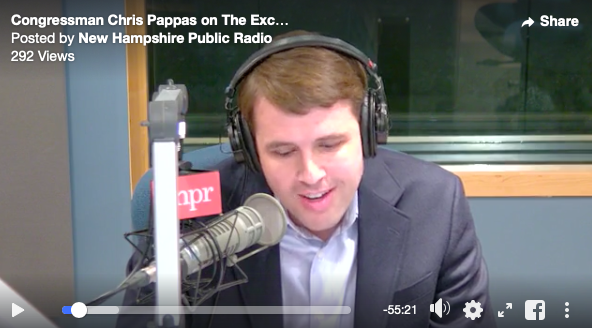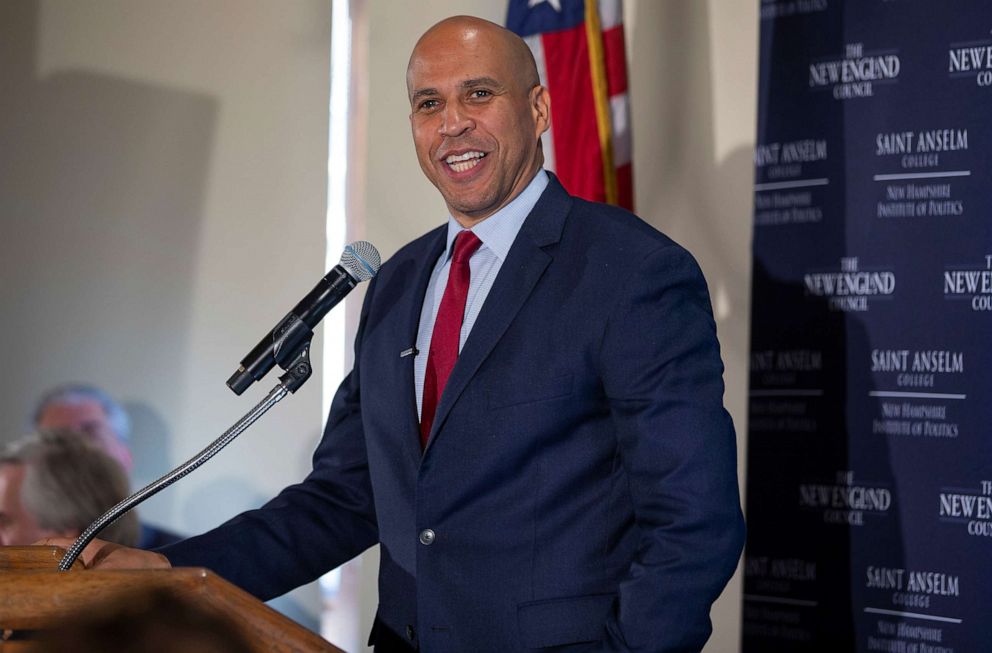Five Questions for Chris Pappas

After months of avoiding questions about his views on impeachment, Rep. Chris Pappas took to the friendly media environs of New Hampshire Public Radio to discuss his support for impeaching President Trump and removing him from office.
Unfortunately, a few significant questions somehow slipped through the cracks. We here at New Hampshire Journal have sent them over to Rep. Pappas’ office. When we get his answers, we’ll be happy to share them with the voters of the First Congressional District.
1: Rep. Pappas, you said these impeachment articles represent “a very strong, clear-cut case with respect to the issue of Ukraine.” A clear-cut case of what? Neither article of impeachment alleges President Trump broke the law. Do you believe future Democratic presidents should face the prospect of removal from office by a Republican Congress without even the assertion of having violated any federal law?
2: Rep. Pappas, you’re supporting articles of impeachment that have no bipartisan support. In fact, even some of your fellow House Democrats are voting against impeachment. Do you view an entirely partisan impeachment vote to be as legitimate as a bipartisan one, such as the 410-4 vote in 1973 to start an impeachment inquiry into President Richard Nixon?
3: When the House of Representatives voted articles of impeachment in 1998, 31 Democrats joined with Republicans to impeach President Bill Clinton, who admitted that he had committed perjury before a federal judge and federal grand jury. Rep. Pappas, do you believe the impeachment of President Clinton was legitimate? Would you have voted to impeach him? If not, why?
4: Rep. Pappas, you said you objected to Senate Republicans coordinating the handling of the impeachment trial with the White House, calling it “colluding.” But then-Senate Minority Leader Tom Daschle (D-S.D.) has acknowledged that he frequently met with the Clinton White House during the impeachment process. And the Clinton White House issued demands that there be no witnesses called during the impeachment, a demand upheld by the Democratic minority in the Senate. Should Republican presidents be impeached differently from Democrats?
5: Rep. Pappas, you rejected the suggestion that your support for impeachment is a sign that you’re merely a water carrier for Speaker Nancy Pelosi and your party’s leadership. “I’m also willing to stand up to members of my own party when they’re wrong for New Hampshire,” you told NHPR. Can you give an example?
And a bonus question, the same question New Hampshire Journal’s been asking the congressman since he first announced his support for an impeachment inquiry in July:
Rep. Pappas, what is your message to the majority of voters in your district, who voted to make Trump president and whose votes you’d be overruling by removing Trump from office?
We look forward to sharing Rep. Pappas’ answers to these reasonable and timely questions in this space.
















